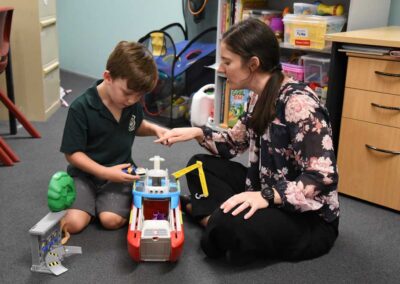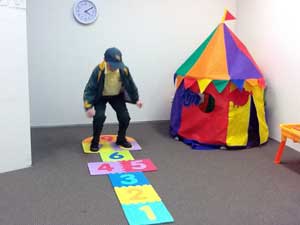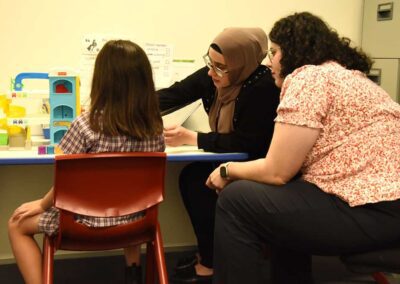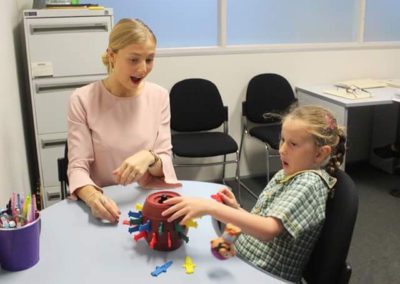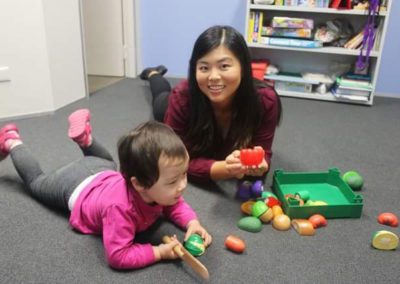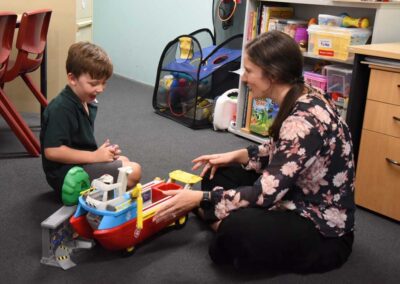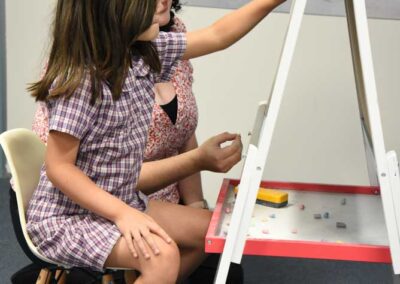In the realm of speech pathology, the concept of a growth mindset has emerged as a vital component in fostering effective communication skills. If you’re not familiar with the term, a growth mindset—developed by psychologist Carol Dweck—is the belief that abilities and intelligence can grow with effort and practice. It’s such a valuable concept, especially in therapy, where progress can sometimes feel slow or even frustrating. In this blog, we’ll explore the significance of a growth mindset in speech therapy and how parents can help instil this mindset at home.
The Importance of a Growth Mindset in Speech Therapy
- Encouraging Resilience: Therapy can be a journey filled with ups and downs. A growth mindset helps children understand that setbacks are a natural part of learning. By framing challenges as opportunities to grow, children can become more resilient, ultimately leading to improved motivation and engagement in therapy.
- Fostering a Love for Learning: When children see their efforts as a path to improvement, they’re more likely to embrace the learning process. This love for learning not only enhances their speech and language skills but also encourages them to explore other areas of development.
- Building Confidence: A growth mindset nurtures self-efficacy. When children recognize that they can improve through practice and persistence, they gain confidence in their abilities. This newfound self-assurance can positively impact their communication skills and social interactions.
How You Can Demonstrate a Growth Mindset at Home
Parents play a crucial role in shaping their child’s mindset. Here are some practical strategies to help cultivate a growth mindset in your home:
- Model Growth Mindset Language
Use language that emphasizes effort, learning, and growth. Instead of praising innate abilities (e.g., “You’re so smart!”), try saying, “I’m really impressed with how hard you worked on that!” This shift encourages children to value effort and persistence.
- Model It Yourself
Create an environment where mistakes are viewed as valuable learning experiences. Share your struggles and how you’re working to overcome them. Demonstrate your own growth mindset by tackling challenges in your life with a positive attitude. For example, “I made a mistake while cooking today, but I learned how to do it better next time!”
- Encourage Perseverance

When your child faces difficulties in therapy, remind them that persistence is key. Encourage them to keep trying and to ask for help when needed. Celebrate their determination to keep going, even when things get tough. For example, celebrate when your child tries a new sound, even if they don’t say it perfectly. For example, “That was such a good try!” or “That’s okay! Let’s try it again.”.
- Set Realistic Goals Together
Help your child set achievable, incremental goals for their speech and language development. Break larger goals into smaller, manageable steps. Celebrate each milestone, no matter how small, to reinforce the idea that progress is a journey. Praise them for every small step they take. If story telling is too difficult, play board games! Allow your child to practice their communication skills in a low-pressure setting.
- Reflect on Progress
Regularly discuss the progress your child is making, both in therapy and in everyday situations. Highlight the effort they’ve put in and the improvements they’ve achieved. This reflection can help solidify the idea that growth is possible and attainable.
Conclusion
Cultivating a growth mindset is essential not only in the context of speech therapy but also in fostering lifelong learning and resilience. By embracing this mindset, children can transform challenges into opportunities for growth, ultimately enhancing their communication skills and self-confidence. As parents, your role in modelling and reinforcing a growth mindset at home is invaluable. Together, we can create an environment that celebrates effort, persistence, and the belief that with hard work, anything is possible.



